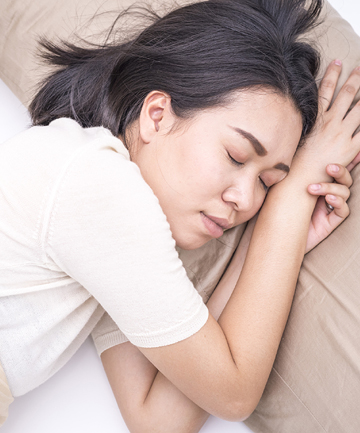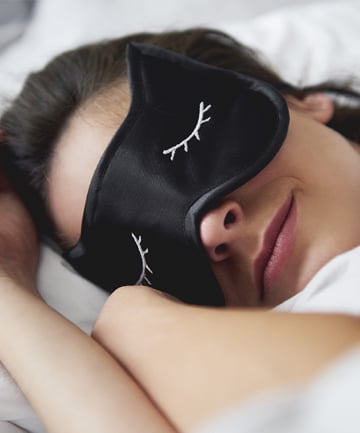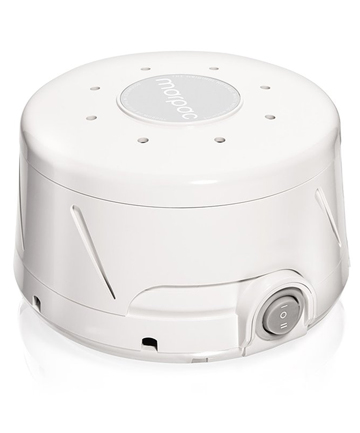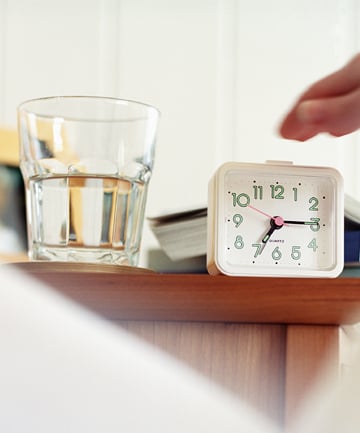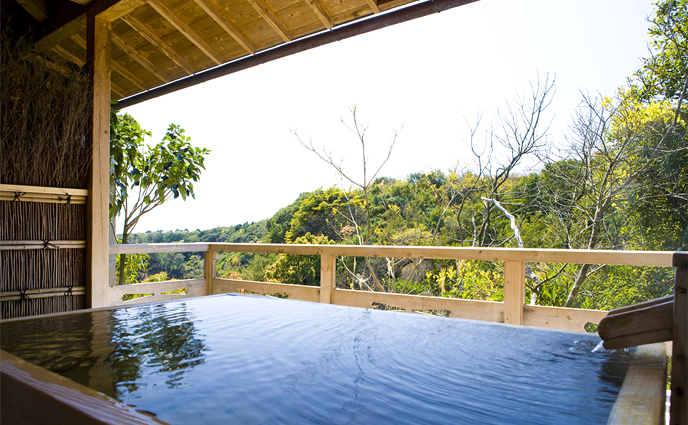What with all the running around we do, getting a good night's sleep often feels like a foregone conclusion... though in reality, it's really something we should be prioritizing. You see, getting an adequate amount of sleep — 7 to 9 hours a night on average — is crucial to our survival and cannot be compromised, according to experts. "Sleeping well is one of the most powerful and effective ways to avoid illness, improve productivity and creativity, boost mood, reduce stress and simply enhance our quality of life," says David Brown, PhD, sleep psychologist at Children's Health and UT Southwestern in Dallas, Texas.
So, how does one go about improving their sleep quality? Well, first off, you're going to want to create a bedroom environment that's conducive to sleep, explains certified Reverie Sleep Coach, Rachel Wong. "If you're a little haphazard about your bedroom environment, you might sleep through the night, but you could be logging lower quality sleep than if you took the time to really create a healthy sleeping space," she says. Not sure if your bedroom is up to par? Here are a few ways it might be "unfit" for quality sleep.
Image via Virojt Changyencham/Moment/Getty
To fall asleep easily, your body needs to lower its core temperature considerably. For this reason, Chris Brantner, certified sleep science coach and founder of the sleep research site SleepZoo, recommends aiming to maintain a bedroom climate of high 60s to low 70s, whether that means lowering the heat in the winter or turning the AC up in the summer.
Another trick he suggests is to take a hot bath before bed. "While it seems like this would raise your temperature, the opposite is actually true," he says. "The hot water will draw blood to your extremities, cooling your core temperature in the process." You can also look into devices like BedJet, which allow you to cool your bed itself.
Image via Tom Merton/OJO Images/Getty
Wong explains that your melatonin production is extremely sensitive to light. "While our eyes contain a large portion of receptors for light, it turns out these receptors can be found in our skin too!" she says. "Even if you sleep an adequate amount, the quality of your sleep will be negatively impacted by a light or dimly lit room." For this reason, it's best to sleep in a pitch-black environment with all lights completely off. "The total darkness helps melatonin do its thing without interruption," she says. If outside variables are keeping your bedroom from being dark, consider purchasing blackout curtains or shades or using an eye mask at night.
Image via Westend61/Getty
Another important factor that could interrupt your sleep quality is intermittent noises at night. "Cars passing on the street, busses zooming by, airplanes overhead, dogs barking, snoring partners — all of these noises have the potential to wake you up at night," says Wong. If your bedroom is in an area prone to intermittent noise at night, she recommends using some sort of white noise, like Marpac Dohm Classic White Noise Sound Machine, $44.95. "White noise creates a consistency in your aural environment that is harder to interrupt, which makes it less likely that you'll wake up in the middle of the night by a passing car or a loud roommate," she says. High-quality earplugs, like Bose Noise-Masking Sleepbuds, $249.95, are another solution, and especially come in handy when you're traveling.
In addition to being an eyesore, bedroom clutter might just cost you a good night's sleep, according to Dr. Brown. "Clutter says chaos rather than order and calm and represents tasks undone that can create a negative tone just by encountering it," he says. He suggests thinking of your bedroom as a sleep sanctuary, ensuring that it is serene, relaxing and pleasing. "If possible, avoid storing things underneath the bed, as this is still a distraction, and keep your bedside table uncluttered as well," he says.
Image via Louis Turner/Photodisc/Getty


